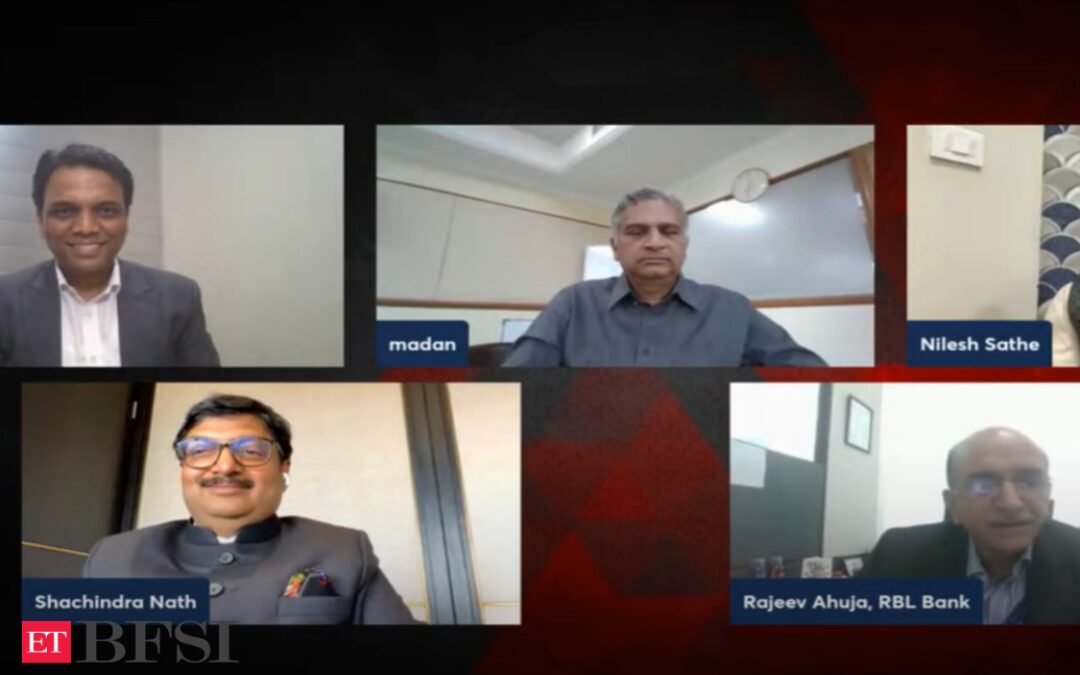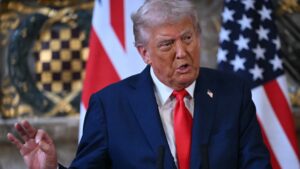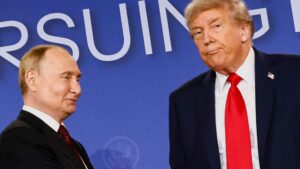~ Shrishti Sharma
Will India realise its ambitious Fiscal Deficit target of 4.5% by FY 2025-26? Can the government propel capital expenditure to new heights? What lies in store on the taxation front, particularly regarding the fate of the old tax regime? And perhaps, most crucially, what strategic measures will be implemented for Micro, Small, and Medium Enterprises (MSMEs) credit dissemination?
In our ongoing coverage, ETBFSI continues to bring these crucial discussions to the forefront, providing insightful perspectives as we conclude the second episode of our live series on Budget 2024 with the BFSI leaders.
Madan Sabnavis, Chief Economist at Bank of Baroda seeking to unravel the trajectory towards achieving the Fiscal Deficit target, also states “I would want the government to continue balancing social welfare and economic expenditure; it is essential to uplift the lower strata of society.”
He commended the effectiveness of the Production Linked Incentive (PLI) scheme, highlighting its positive impact on various industries and also voicing his apprehension regarding the slow momentum in private sector investment. Specifically, he emphasised the need for broader diversification, expressing a desire to see increased private sector involvement beyond infrastructure-related industries, such as aviation, oil industries and chemical industries.
The heartbeat of India’s economic prosperity lies in the MSME sector, contributing approximately 30% to the country’s GDP and serving as a vital source of employment, especially in rural and semi-urban areas. Shachindra Nath, Founder & MD of U GRO Capital, articulates a checklist for India’s Union Budget 2024, emphasising the importance of MSMEs.
“India’s prosperity and economic growth depend on the prosperity and stability of MSMEs. We need continuous injection of liquidity so that credit can be provided.”
He further highlights the role played by Non-Banking Financial Companies (NBFCs) in the credit dissemination process. Nath expresses anticipation for policy support from the government, emphasising the need for sustained measures to ensure a stable financial ecosystem for MSMEs.
Adding to the MSME discussion, Rajeev Shukla, Executive Director, RBL Bank says, “Distribution to MSMEs has been very patchy; NBFCs are the ones that have brought MSMEs into the lexicon in terms of financing.” He calls for collaborative efforts between NBFCs, banks, and the government to accelerate capital provisioning.
Expressing concern over the hurdle in private capex, Ahuja highlighted the need to maintain the right conditions for sustained industrial growth. He acknowledged the role of public capex but urged for a focus on mid-sized companies, suggesting that the metro plants have consumed a significant portion of the credit.
Nilesh Sathe, Former IRDAI Member, contributes a unique perspective on the insurance sector’s dynamics. “Insurance at one point of time was looked at as an instrument to save tax but the new generation has understood that insurance should be purchased for covering risk on life,” Sathe remarks.
He advocates for revisiting tax concessions for the insurance sector, acknowledging its capital-intensive nature, and hopes for proposals regarding the amendments in the Insurance Act.
As India anticipates the Union Budget 2024, insights from BFSI leaders underscore the need for a balanced fiscal approach, emphasising MSME support, private sector participation, and strategic policy measures for sustained economic growth.










